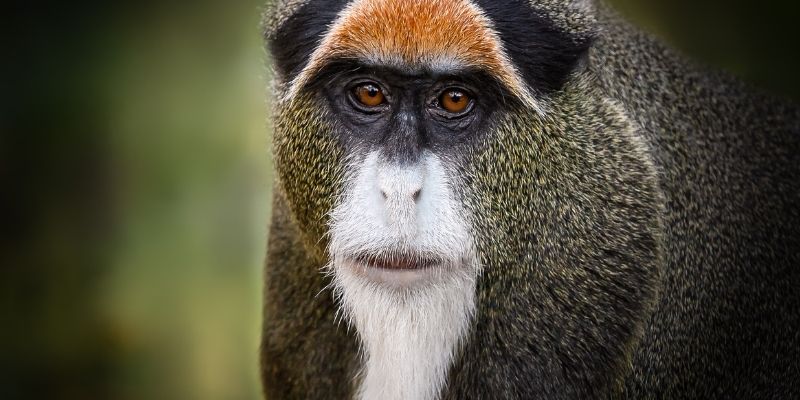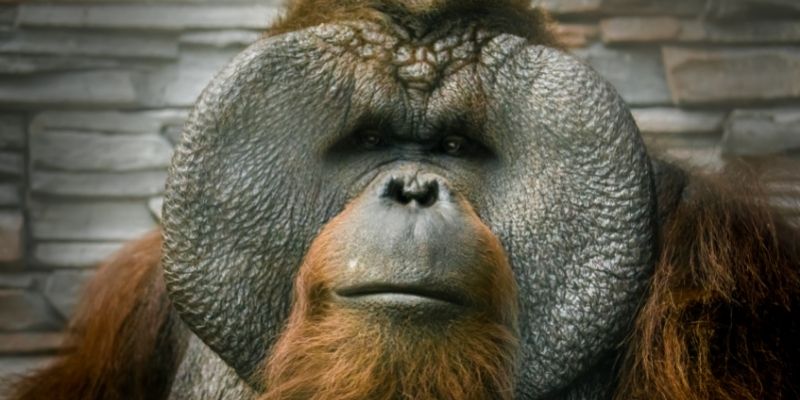10 Fascinating Facts About Primates
Have you always been intrigued by the world of primates? Are you keen to pursue primate jobs in welfare or conservation? Well, if you do end up in this field, then you have the opportunity to immerse yourself in the world of these wonderful creatures.Whether you have your heart set on working with primates or you are considering this route as a potential career, continue reading! We have gathered 10 fascinating facts about primates, some of which you may already know while some others may surprise you! Not only that, but we have outlined how you can take a step towards a rewarding career with primates by studying dedicated wildlife courses.
1. Orangutans are the Most Intelligent Animal in the World
The animal kingdom is full of captivating creatures who boast impressive levels of intelligence, but would you have guessed that orangutans sit at the top of the pile? According to scientific studies, orangutans are the world’s most intelligent animal, cleverer than chimpanzees and gorillas, who are generally regarded as the primates that are closest to humans. Researchers found that orangutans share approximately 97% of their DNA with humans, and they are able to problem solve and learn new skills.
2. Not Every Primate is a Monkey
One of the biggest misconceptions about primates is that they can all be regarded as monkeys. The reality is that there are various types of primates and some of them do not fall into the monkey category. Essentially, there are apes and monkeys, with the former containing a handful of primate species, including: - Humans
- Gibbons
- Chimpanzees
- Bonobos
- Orangutans
- Gorillas

3. The Myanmar Snub-Nosed Monkey Sneezes When it Rains
In 2010, a new species of snub-nosed monkey was discovered in Myanmar, and it has an interesting feature. These species of primate animals have an upturned nose, which means that whenever there is rainfall, it falls into their nostrils, causing them to sneeze uncontrollably. To prevent this, these snub-nosed monkeys tuck their heads between their knees when rain falls.
4. Primate Animals are Very Sociable
Most types of primates seek a sense of community, as opposed to many other animals who like to navigate through the world alone. Primates can seek the protection of male or female-dominated clans, and they are also known to form monogamous relationships. In some instances, primates form nuclear families, with a mother, father, and children. It is widely thought that primate animals seek communities because they rely on their brains more than their physical attributes, such as claws and teeth.
While it seems as though types of primates are happy families, there are some communities who are aggressive and sometimes deadly towards other members. For example, it is known that some primate animals kill the newborns of other primates within the clan.
5. Primates Can Use Tools and Monkeys Can Count
Primate animals can use their intelligence in a skilful way by taking objects such as stones and leaves to use as tools when carrying out certain tasks. In fact, it is thought that primate animals use tools more than any other animal. Not only that, but some types of primates have the ability to count! In a 2021 study, it was found that rhesus monkeys can count from 1 to 6. During the study, researchers showed a sequence of visual patterns to three monkeys and trained them to make a response when the sixth pattern appeared.
Within 3 months, all three monkeys were able to choose the sixth pattern correctly without prompt, showing that types of primates have the capacity to count.

6. Primates are Slower to Develop than Other Mammals
Given that the brains of primate animals are larger than others within the animal kingdom, it takes longer for them to form their full cognitive function. Some newborns possess survival instincts as soon as they are born, but newborn primates would be unable to survive in the world without the help of their parents or other members of their clan.
7. You Can Tell How Healthy a Bald Uakari is by their Face
As mentioned, there are various types of primates that have standout features. Bald uakaris are primates that have striking red faces. While the evidence is not concrete, it is widely thought that the facial colour of these types of primates indicates how healthy they are. It has been suggested that if a bald uakari has a bright red face, they are deemed healthier than one whose skin tone is paler. We as humans can determine the general health of these primates, but they can also do the same to each other. In fact, bald uakaris have fantastic colour vision, so when it’s time to mate, they can decide who is the healthiest partner for them.
8. Most Primate Animals are Omnivorous
It would be easy to assume that primates are carnivorous given their dominant position in the animal kingdom, but most of them are omnivorous, with various types of primates generally feeding on: - Leaves
- Insects
- Fruits
9. The Fangs of a Mandrill Monkey are Longer than a Lion’s
One of the most commanding figures in the animal kingdom is the lion, so it is difficult to comprehend that an animal from another species could have larger fangs. Well, the truth is that the Mandrill Monkey’s fangs are larger than that of a lion, and the male mandrill is the largest living monkey. Plus, it is one of the most colourful, with purple and blue ridges, red lips, and a red nose. 
10. We are Yet to Discover Every Species of Primate
Given that primate animals are evolutionarily the closest to humans, you would assume that we would be aware of all the types of primates. However, there are more species of primates that are constantly being discovered in all corners of the earth. There are many habitats that are out of reach for humans, so it makes sense that there are still species to discover. Over the years, primate discoveries have been made, and there will be more to come.
Learn Everything You Need to Know About Primate Animals
With Animal Courses Direct, you can explore the wonderful world of primates thanks to our regulated online courses. The Level 3 Award in Primate Studies covers the biological development of primate animals, as well as the ecology and behaviour of types of primates. During your studies, you will cover the following modules: - Primate Biology, Ecology and Behaviour
- You will learn how to identify the behaviours of primates and how they interact within their environments and with other species
- Upon completion of this unit, you will understand the classification and diversity of species
- Primate Conservation and Management
- You will gain an understanding of the principles of primate conservation
- This module will help you learn ways to improve the welfare of primates in rescue centres
- 100% online
- Study from home, in your own time, and at your own pace
- Two years to complete the course
- Achieve a regulated qualification
- Must be aged 16 or over to enrol
Discover the Wonderful World of Primates Today!
Now that you have equipped yourself with 10 fascinating facts, take a big step towards achieving primate jobs by enrolling on our online course! You can discuss the course by giving us a call on 01202 006 040, contact us online, or click below to learn more.Also, if you adore animals, you can keep track of all upcoming animal awareness days and events with our FREE calendar! Download it here.
(2).jpg)
















